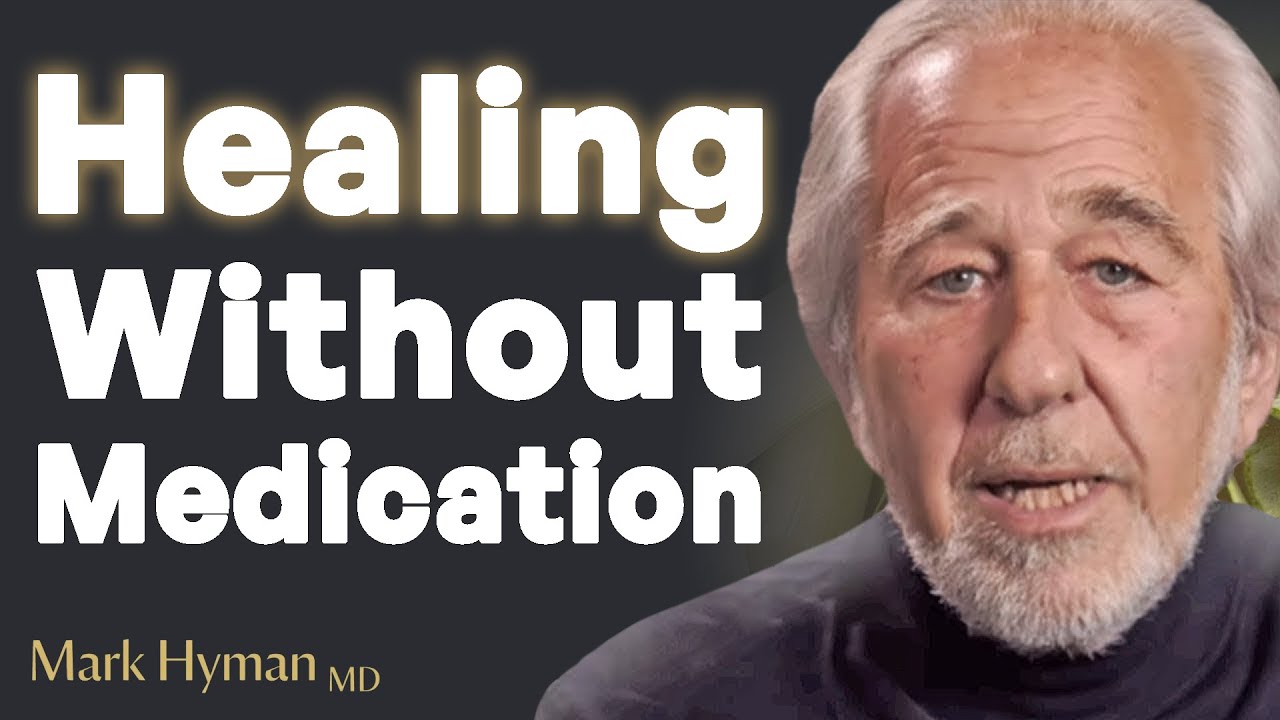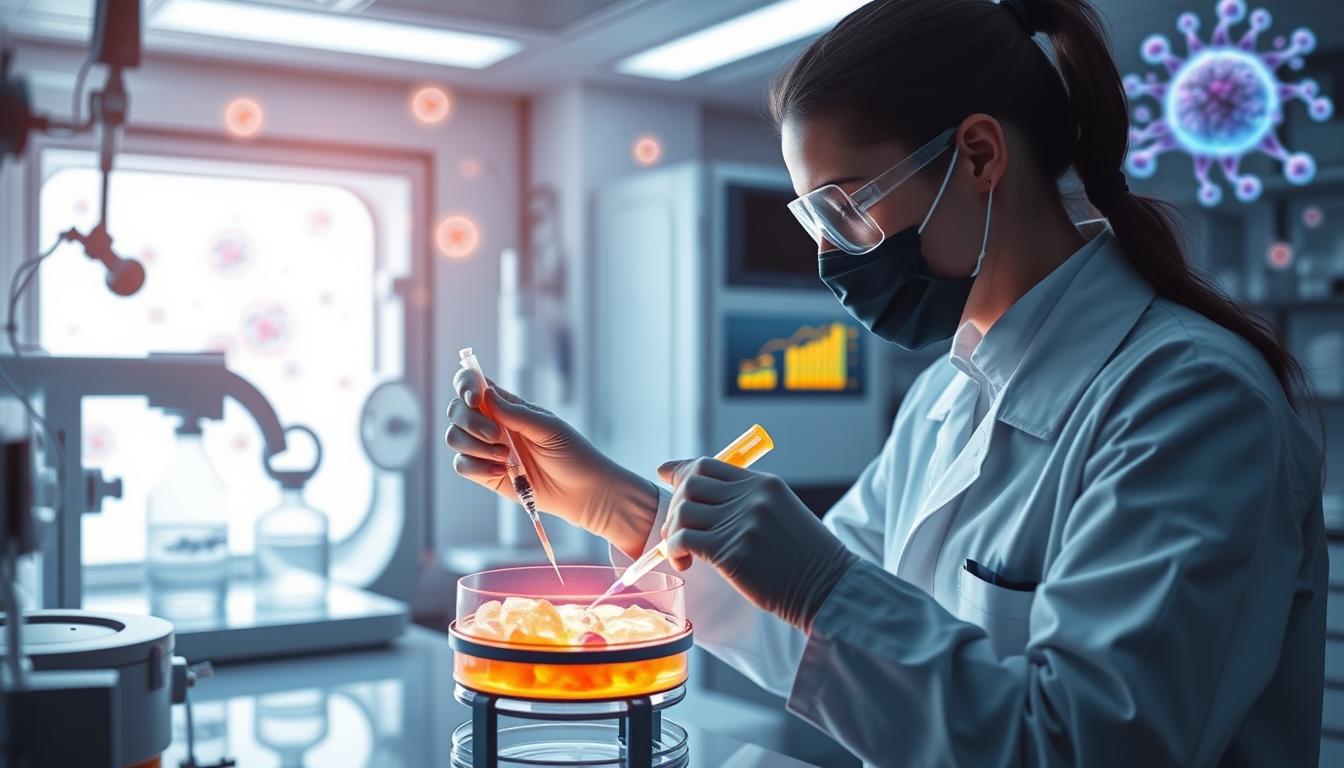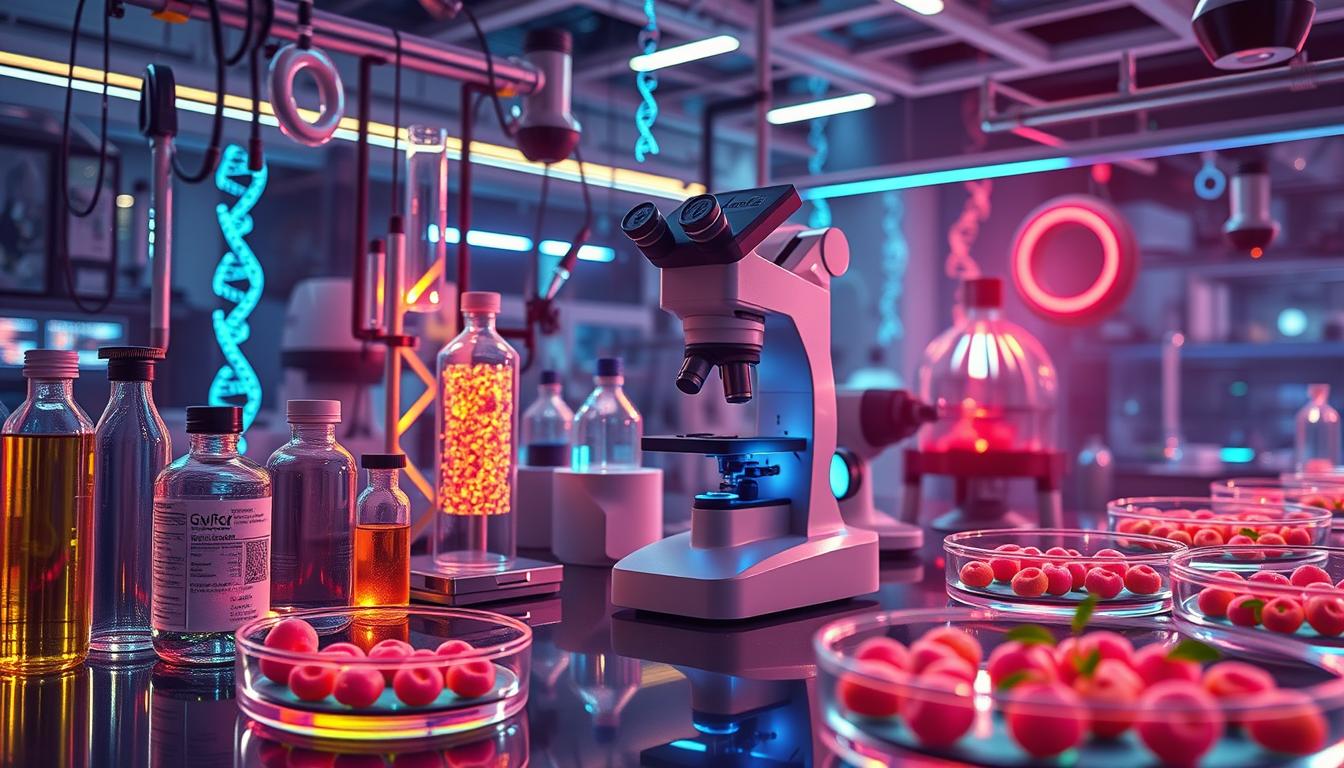Dr. Bruce Lipton shares fascinating insights about how your beliefs can shape your genetic expression and overall health. Through his extensive research in stem cell biology and epigenetics, he emphasizes that it’s not solely your genes that determine your health outcomes, but rather the powerful connection between your thoughts, feelings, and biological processes. This article will explore the concept of the “biology of belief,” the effects of positive and negative thinking, and the various methods you can adopt to influence your wellbeing.
As you learn about the impact of emotions on your body, you’ll discover how positive thinking can promote healing, while negative thoughts can lead to stress and illness. Lipton’s findings illustrate that you have the power to change your health destiny by modifying your mindset and beliefs. By embracing these ideas, you can take control of your health journey, ultimately fostering a more empowered and balanced life.
Understanding the Biology of Belief: Insights from Dr. Bruce Lipton
Introduction to Dr. Bruce Lipton
Background and credentials of Dr. Bruce Lipton
Dr. Bruce Lipton is a distinguished stem cell biologist and author, recognized for his groundbreaking work bridging the fields of science and spirituality. With over 50 years of research, he has gained widespread acknowledgment for his theory that our beliefs and perceptions significantly influence our health and well-being. Lipton’s impressive credentials include teaching at the University of Wisconsin’s School of Medicine, where he conducted research on cell biology. He has authored bestsellers like “The Biology of Belief,” “Spontaneous Evolution,” and “The Honeymoon Effect,” solidifying his reputation as a leading voice in understanding the intersections of genetics, consciousness, and healing.
Overview of Lipton’s work in stem cell biology
One of Dr. Lipton’s most significant contributions to science is his exploration of stem cell biology. He discovered that stem cells possess the remarkable ability to respond to their environment. This adaptation suggests that cells are not solely programmed by their genes but can change and organize themselves based on external and internal signals. Lipton’s research provides compelling evidence that the environment plays a critical role in cellular behavior and health.
Introduction to the concept of the biology of belief
Dr. Lipton introduces a transformative idea known as the “biology of belief,” which posits that our thoughts, beliefs, and perceptions have a direct influence on our genetic expression and overall health. This concept challenges the traditional understanding that genes exclusively dictate our health outcomes. Lipton emphasizes that we have the power to shape our biology and wellness through our mindset and beliefs.
Understanding Genetic Expression
Definition of genetic expression
Genetic expression refers to the process by which information from a gene is used to synthesize functional gene products, usually proteins. This process is not merely a straightforward path from DNA to physical traits; rather, it is influenced by various factors, including environmental conditions and psychological states.
Role of DNA versus environmental influences
While DNA carries the genetic blueprint of an organism, Dr. Lipton emphasizes that less than 1% of diseases are solely caused by genetic factors. Instead, environmental influences—including lifestyle, nutrition, and emotions—play a pivotal role in dictating how genes are expressed. Your experiences and the environment surrounding you are fundamental to determining how your genetic potential is realized in your body.
Misconceptions surrounding genetics and health
A common misconception is the belief that genes are fixed and unchangeable, creating a sense of victimhood regarding health. This notion implies that individuals have no control over their health, as they are “stuck” with the genes they inherit. However, this perspective overlooks the crucial roles of consciousness, environmental factors, and lifestyle choices in shaping health outcomes.

The Biology of Belief
Definition and origins of the biology of belief concept
The “biology of belief” concept originated from Dr. Lipton’s early research when he observed that the environment surrounding cells significantly influenced their behavior and genetic activity. He formulated the idea that our conscious and subconscious beliefs can impact tissue health, impacting the long-term functioning of our bodies.
Influence of thoughts and beliefs on cellular behavior
Dr. Lipton’s work reveals that thoughts and beliefs can produce biochemical effects that affect cellular behavior. When you have a positive thought, your body releases beneficial hormones and neurotransmitters. Conversely, negative thoughts and beliefs trigger stress responses, which can lead to disease conditions. Essentially, your mind can dictate the health of your body and validate the adage that “thoughts become things.”
Scientific studies supporting the biology of belief
Numerous scientific studies have corroborated the biology of belief concept. Research has showcased the placebo effect, highlighting that belief in treatment can lead to real physiological benefits, even when the treatment has no therapeutic value. This phenomenon demonstrates how powerful belief can be in influencing health, affirming Lipton’s assertion that our thoughts can dictate our biological reality.
Emotions and Health
Impact of negative emotions on chemical processes
Negative emotions such as anger, jealousy, and fear can create adverse biochemical changes in the body. These emotions may lead to chronic stress, activating pathways that promote inflammation and contribute to various illnesses. Recognizing how your emotional state influences your biochemical environment is crucial for managing overall health.
Connection between positive emotions and healing
In stark contrast, positive emotions—such as love, joy, and gratitude—produce beneficial chemical reactions. These emotions can enhance healing processes, boost immune functionality, and promote overall well-being. Embracing a positive mindset promotes a physiological environment conducive to health and longevity.
The role of emotions in the placebo effect
The placebo effect exemplifies how belief and emotion can create substantial health effects. When patients believe they are receiving effective treatment, their brain releases endorphins and other healing hormones, leading to real improvements. Dr. Lipton emphasizes that understanding this mechanism is crucial to harnessing the true power of belief in healing.

The Placebo and Nocebo Effect
Defining the placebo effect and its implications
The placebo effect is a fascinating phenomenon in which a patient experiences healing or symptom relief after receiving an inert treatment, such as a sugar pill, purely because they believed it would work. This effect challenges traditional medical assumptions, suggesting that belief alone can drive physical changes in the body.
Overview of the nocebo effect and its consequences
Conversely, the nocebo effect occurs when negative beliefs and expectations lead to adverse health outcomes. For instance, if someone believes a medication will cause unpleasant side effects, they may experience those effects even if they are not part of the treatment. This underlines the significance of mindset in determining health.
Case studies highlighting the power of belief in treatment
Dr. Lipton shares various case studies illustrating how belief impacts treatment outcomes. In one study, patients with chronic pain improved significantly after receiving a placebo, demonstrating the invigorating effects of belief. These real-world examples emphasize that our thoughts dramatically shape our healing journeys, meaning we can work actively towards better health.
Epigenetics: The Link Between Environment and Genes
Definition and significance of epigenetics
Epigenetics refers to the study of changes in gene expression that do not involve alterations to the underlying DNA sequence. Instead, these changes are influenced by various factors, including environmental conditions and lifestyle choices. Understanding epigenetics is essential as it reveals how you can intentionally shape your health outcomes through your daily life.
How environmental factors influence gene expression
Environmental factors such as diet, stress, toxins, and social interactions can modify gene expression. This insight implies that your environment can dictate your biological fate, challenging the long-standing notion of genetic determinism. The way you interact with your environment influences your cellular health and resilience.
The misconception of genetic determinism in health
Dr. Lipton insists that believing one is “doomed” by their genetics is a harmful misunderstanding. He encourages you to recognize that while genes play a role, they do not solely determine your health. By making conscious choices—like managing stress and fostering positive thoughts—you are empowered to change gene expression, favorably affecting your health journey.
Role of Consciousness in Biology
Defining consciousness in the context of health
Consciousness can be understood as the awareness and perception shaping your beliefs and experiences. In the context of health, consciousness encompasses the thoughts and beliefs you hold about your body and its capabilities. It is an active force in influencing your biochemistry, and your state of awareness can dictate your biological well-being.
How consciousness can override genetic determinants
Dr. Lipton emphasizes that consciousness has the potential to override genetic determinants. With a positive and purposeful mindset, you can positively influence genes tied to health and disease. This means you are actively participating in the co-creation of your health, rather than being at the mercy of your genetic makeup.
Biochemical effects of positive and negative thoughts
The brain processes thoughts and translates them into biochemical signals that influence the body’s health. Positive thoughts can stimulate the release of healing chemicals, such as serotonin and dopamine, while negative thoughts can result in the production of stress hormones like cortisol. Becoming aware of this process can empower you to cultivate a positive internal dialogue that fosters health and resilience.
Mechanisms of Thought Influence
Environmental signals and cellular behavior
The environment provides numerous signals to cells, influencing their behavior and fate. These signals can come from physical surroundings, emotional states, and social interactions. Understanding how these signals affect your cells enables you to create a healthier internal and external environment tailored to fostering wellness.
The brain’s role in converting thoughts to biochemical signals
Your brain functions as a chemist, converting thoughts into biochemical signals. These signals communicate with cells throughout your body, affecting their actions and outputs. By changing your thoughts—whether through meditation, affirmations, or other practices—you can actively shift your biochemistry in a healthier direction.
Understanding how thoughts shape health outcomes
Your thoughts are more than mere reflections of your reality; they actively shape your biology. When you cultivate a positive mindset and healthy beliefs, you invite transformative changes in your cellular function. Recognizing this power encourages you to take an active role in shaping your health outcomes.
Practical Applications of Positive Thinking
Therapies and practices to shift limiting beliefs
You can engage in various therapies and practices to shift limiting beliefs and foster a healthier mindset. Techniques such as cognitive-behavioral therapy, energy medicine, and life coaching can help you identify and overcome negative thought patterns, paving the way for improved health.
Importance of self-hypnosis and positive affirmations
Self-hypnosis, along with positive affirmations, can profoundly affect your subconscious beliefs. These practices allow you to reprogram limiting beliefs and align your mindset with your health aspirations. By consistently affirming your worth and potential, you cultivate a psychological environment conducive to healing.
Role of energy psychology in reprogramming the mind
Energy psychology techniques, such as Emotional Freedom Techniques (EFT), can help you address limiting beliefs tied to emotions. These methods involve tapping on meridian points while focusing on negative thoughts, allowing for emotional release and reprogramming. Integrating these techniques into your routine may lead to significant improvement in overall well-being.
Conclusion
Summary of Lipton’s insights on beliefs and health
Dr. Bruce Lipton’s groundbreaking insights have reshaped our understanding of health and wellness. Through his research into stem cell biology, epigenetics, and the power of belief, he illustrates that you have the power to influence your genetic expression through your thoughts and emotions.
Encouragement for active participation in health management
Recognizing the interplay between belief and biology empowers you to take an active role in managing your health. By cultivating positive beliefs and fostering a nurturing environment, you can ignite transformative changes in your overall well-being.
Final thoughts on harnessing the power of belief for well-being
Your beliefs represent a powerful tool for shaping your life. By consciously adopting a mindset grounded in positivity and possibility, you can unlock profound health benefits. Embrace the potential of your mind and the biology of belief to journey toward a healthier, happier life. Remember, you have the capacity to change, grow, and thrive. Stem cells have the extraordinary ability to repair and regenerate damaged cells, making them a promising solution for many chronic conditions. However, traditional stem cell therapy is often out of reach due to high costs, the need for donors, or the requirement to travel abroad. Fortunately, a groundbreaking stem cell technology is now available, offering a more affordable and accessible way to experience these benefits.
This technology complements healthy lifestyle habits—like eating well, exercising, and reducing toxins—to enhance the body’s natural healing processes. It accelerates recovery, supports immune function, and combats inflammation by strengthening your cells. To learn how this innovative solution can benefit you, your loved ones, or those facing health challenges, contact us at stemboostx @ gmail.com with the subject “AIWNBOX.”



